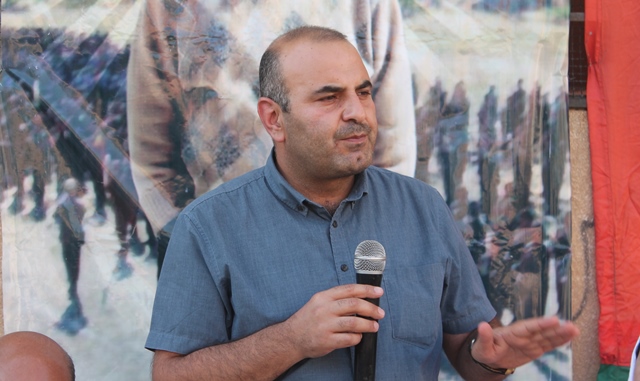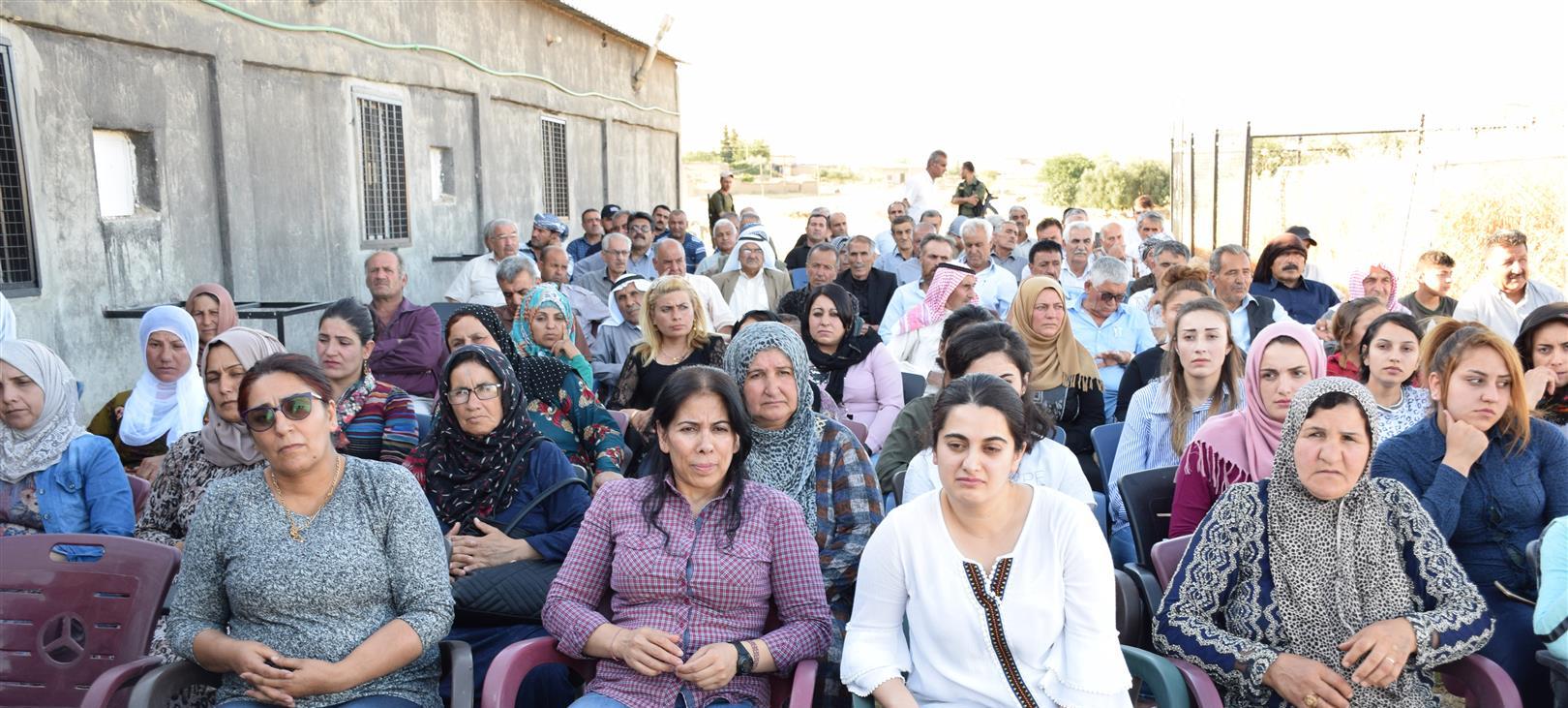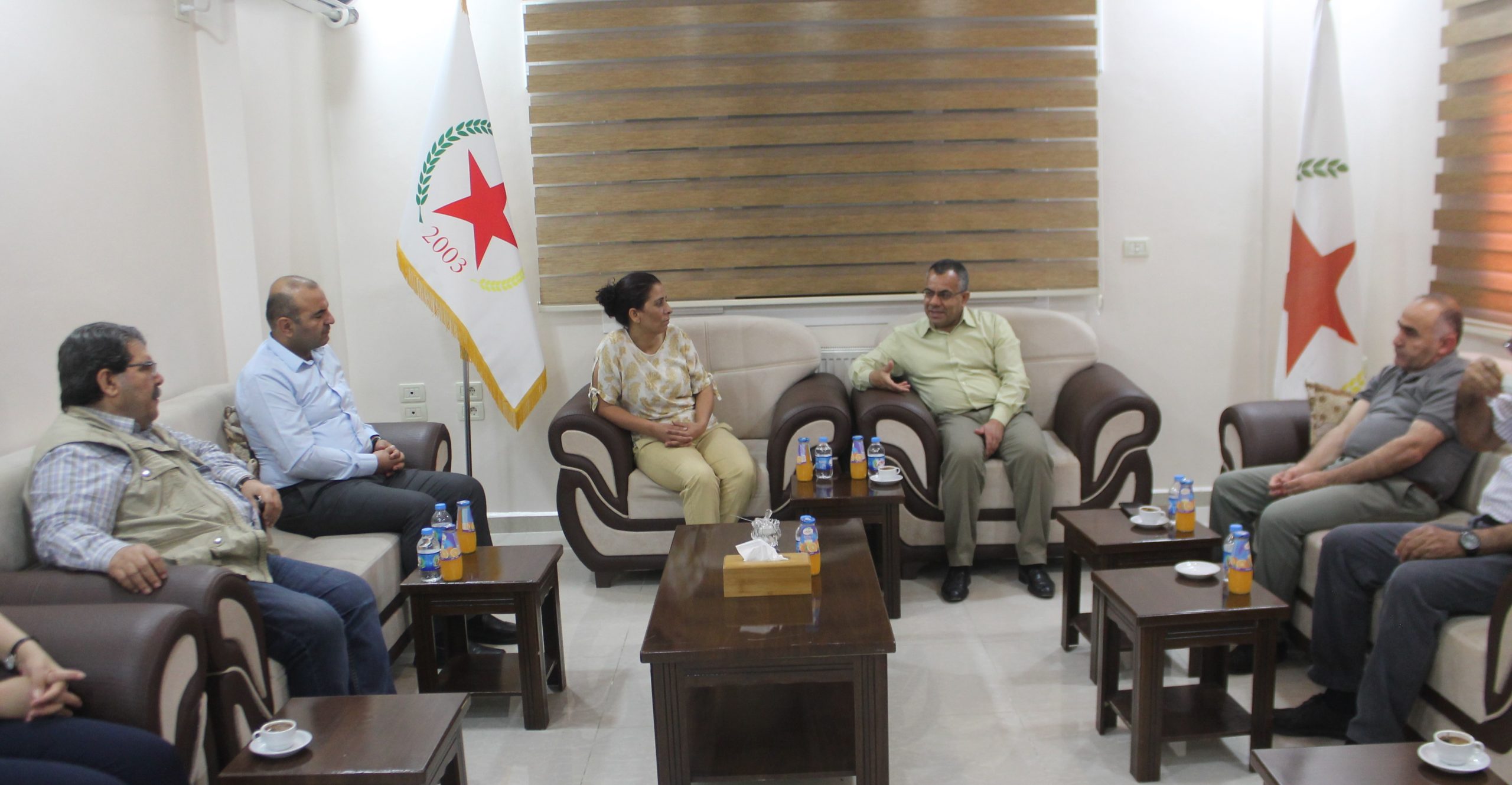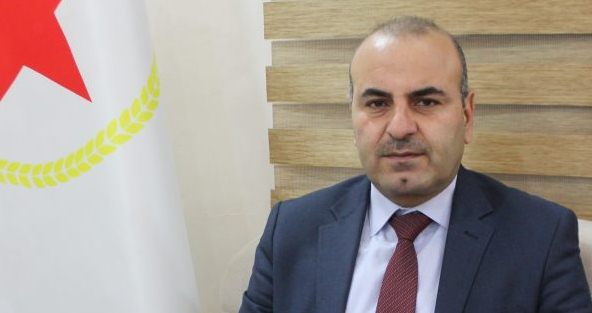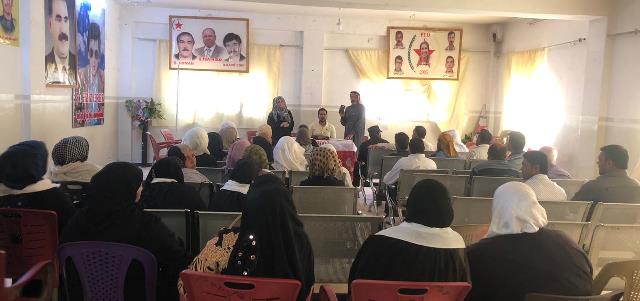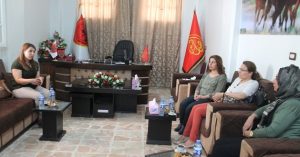
The American website of Al-Monitor published an article by the Turkish writer Ambrine Zaman in which she talked about Turkey’s annoyance with the Kurdish-Kurdish dialogue, and said that Turkey has begun to openly signal its displeasure with the U.S.-backed peace talks among the Kurds in Syria, and this discontent came through the attack of the media outlets calculated on the Justice and Development Party.
On the same day, the Turkish Foreign Ministry issued a statement criticizing Greece, Egypt, Cyprus and the United Arab Emirates for the ongoing confrontation in the eastern Mediterranean.
The Justice and Development Authorities attacked France for its contribution to the Syrian Kurdish-Kurdish peace talks.
Unusually, Turkey also attacked the president of Başûr Kurdistan Region (South Kurdistan) Nechirvan Barzani, the ally of Turkish President Recep Tayyip Erdogan, as Turkish media outlets said that Barzani was “commissioned” by France and the United States to implement the plan.
The talks began between the Democratic Union Party (PYD) which is part of the Autonomous Administration of North and East Syria and the so-called Kurdish National Council which includes several parties engaged within the so-called Syrian coalition based in Istanbul, Turkey.
The U.S. State Department’s envoy on the ground William Robak is mediating between the two sides.
The representative of the Democratic Peoples Party (HDP) in Washington Jiran Ozjan says: “The Kurdish rights, such as sea level rise, when rise somewhere, rise everywhere.”
Therefore, it is not surprising that the United States put pressure on both sides to refrain from commenting to the media outlets about the talks for fear that they would be blown up again.
The last round of dialogue began in late October by the Commander of the Syrian Democratic Forces Mazloum Abdi who played a crucial role in helping the U.S-led coalition destroy the so-called caliphate declared by ISIS in parts of Syria and Iraq.
Abdi transformed his strategic acumen from the battlefield to diplomacy in the hope of the participation of the Kurdish National Council and other Kurdish parties, and he is enabled to strengthen the diplomatic legitimacy of the Autonomous Administration. Abdi described the effort made in an interview with Al-Monitor in January as establishing a joint Kurdish front to defend the Kurdish rights, whether they are now suspended in peace talks mediated by the United Nations in Geneva, or in future negotiations with the central government in Damascus.
The timing was not coincidental, as Abdi contacted the Kurdish National Council shortly after Turkey’s attacks launched on October, 09, 2019 on the northern and eastern regions of Syria between Serêkaniyê / Ras al-Ain and Girê Spî / Tel Abyad.
There is a lot of talks within the U.S. State Department team led by James Jeffrey about the repetition of the “Manbij model” across northern and eastern Syria, where dozens of administrative and military cadres that Turkey claims their alleged association with the Kurdistan Workers Party (PKK) have been withdrawn.
The Kurdish-Kurdish dialogue would weaken Turkey’s pretexts that Autonomous Administration is part of PKK, which would end Turkey’s objections to the partnership between the United States and the Syrian Democratic Forces (SDF), as well as protect northern and eastern Syria from more Turkish attacks and more American treachery.The oil Trump cites as a reason to keep U.S. forces in northern and eastern Syria will help strengthening the relations, as he already does with the Kurdistan Region Government in Iraq, and tensions between Washington and Ankara will ease the first alliance with SDF.
From PKK’s viewpoint, this scenario may force Turkey to resume peace talks with the Leader Abdullah Ocalan and agree to a ceasefire. A veteran activist in PKK in Iraqi Kurdistan told Al-Monitor via whatsapp: “We want the talks to succeed more than any other person.”
It is possible that these accounts prompted the United States to support the negotiations. A senior official in the Kurdish National Council, while speaking to Al-Monitor, insisted: “The Americans are really serious, and Mazloum Abdi is very honest.”
The Kurdish National Council was in no way able to avoid Abdi’s initiatives, which if ignored confirm that the Kurdish National Council is taking its instructions from Ankara amid general anger over the Turkish attacks.
an informed source that asked not to be named said: “It is good that the Kurds co-exist with each other and are not divided by the great powers.”
The source pointed out that there are parts of the American-Syrian team that believe that in the event of a consensus among the Kurds, this will play the key role in calming Turkey, turning north and east Syria against Damascus and containing Iran.
The source added: “Turkey will never raise its veto over SDF in Geneva, and the United States should insist on the presence of SDF in Geneva, especially as it continues to refer to Geneva as the only platform for discussions with Damascus.”
Omer Ocalan, the representative of HDP was more acute when he said: “Where Turkey sees the Kurds as making political gains, it is determined to crush them.”
He added in a telephone interview with Al-Monitor: “The Kurdish issue has spread beyond the borders of Turkey, and it cannot be resolved through the internal political dynamics in Turkey. As Kurdish people, we must think a lot now and establish international alliances based on our values and principles, of course.”
The western observers believe that the other reason that lies behind the American courtship towards the Kurds in Iraq and Syria is that it seeks to strengthen the presence of its forces in the Kurdish areas as an alternative to the rest of Iraq, where calls for leaving the American forces have increased since the assassination of the Iranian Quds Force Commander Qassem Soleimani.
One observer said: “The Americans need the borders between Iraqi Kurdistan and northern and eastern Syria to be open and flexible. Their dependence on the Kurds has increased, that helps maintaining calm.”
In another cynical maneuver, Turkey called for the so-called Independent Intellectuals Association to join the so-called Syrian opposition based in Istanbul. This group which was established in Ankara in 2016 does not have support on the ground according to the author Vladimir Van Welgenberg. He said that Turkey’s goal is to “exert more pressure on the Kurdish National Council during talks with PYD.”
He added in an e-mail to Al-Monitor: “Turkey wants to show that it has alternatives to the Kurdish National Council in case they reach an agreement with PYD, and Turkey has concerns that the deal may be in progress.”
Welgenberg believes that the chances of the deal are “limited” not only because of Turkey, but because the Kurdish National Council does not want to integrate the so-called “Peshmerga Roj” into the ranks of the Syrian Democratic Forces. The latter considers that the existence of two military forces on one land is a cradle for sowing the seeds of conflict among the Kurds.

